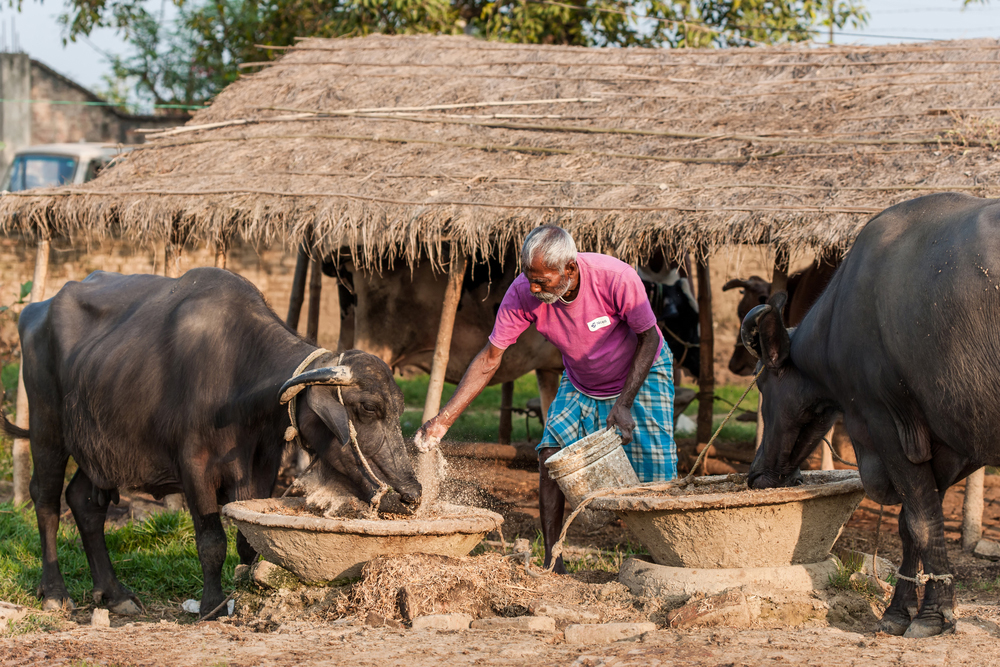The Supreme Court has asked the central government and all states and Union territories to respond to a petition that has sought a directive to the authorities to stop the slaughter of “critically endangered species of cow progeny with immediate effect”.
A bench of Justices Arun Mishra and M.R. Shah on Monday issued notices on the appeal that Mathala Chandrapati Rao has filed.
Rao, an 83-year-old farmer from Andhra Pradesh, has challenged an order the National Green Tribunal (NGT) had passed in August 2018, disposing of his application without any specific directions.
The NGT had disposed of the matter after recording an undertaking from the Centre and state governments that effective and coordinated steps were being taken to prevent illegal slaughter of cows.
The petitioner has now approached the top court seeking its directives to the authorities concerned to “take immediate steps to save the critically endangered species of cow progeny… so that they are not allowed to be slaughtered in any part of the country”.
Rao has also urged the court to ensure that only indigenous and healthy cattle are used for breeding so that their offspring are naturally grown in local environmental conditions.
The farmer said steps should be taken too for research in the milk yield of indigenous cattle and for improving the efficacy of indigenous bullocks in farm-related work.
Rao called for maximum permissible incentives to farmers for acquiring and maintaining indigenous cow progeny and a directive to the Centre to accept and implement the recommendations of the National Commission on Cattle, 2002.
The petitioner said the NGT had failed to direct the “closure of more than 1,00,000 unauthorised slaughterhouses in existence all over the country; and restrict import of exotic bulls and bullocks, which was leading to depletion of indigenous cattle wealth”.
He submitted that in the cattle commission’s 2002 report, the panel’s then acting chairperson, Justice (retd) Guman Lal Lodha, had expressed serious concern on the slaughter of cows and calves but no action had been taken either by the Centre or the states.
The commission, Rao’s petition said, had recommended a ban on all illegal slaughterhouses and suggested that a National Gokul Mission be set up to save cattle but it had not been done so far.
Rao has included extracts from the commission’s report in his petition. “We are constrained and deeply hurt to note that even in the state capitals, under the very noses of the chief ministers, secretaries and the director-generals of police, slaughter and massacre of even cow and calf, which is prohibited in almost all the states, except Kerala, takes place almost every day in suburbs, busy localities and townships, not to talk of villages,” says one of the extracts quoted in the petition, adding that the cow and its progeny were slaughtered “daily” in Bhubaneswar to provide “beef to the zoo animals”.
Another extract, mentioned by Rao, says that “various state governments have admitted their inability to stop the coming up of large numbers of illegal slaughterhouses and their similar inability to stop the mass smuggling of cattle to Bangladesh and Kerala, from the States of UP, Haryana, Rajasthan and MP in the north and AP, Karnataka and Tamil Nadu in the south”.
“Even the British government in 1944 (had) prohibited its military from killing milking cows and calves up to three years and males up to 10 years of age, but in the Deonar slaughterhouse in Mumbai, … Maharashtra government officials accepted that they treat… cattle as… calf only up to the age of one year. What a pity!” Rao’s plea quoted the commission as saying in its report.










